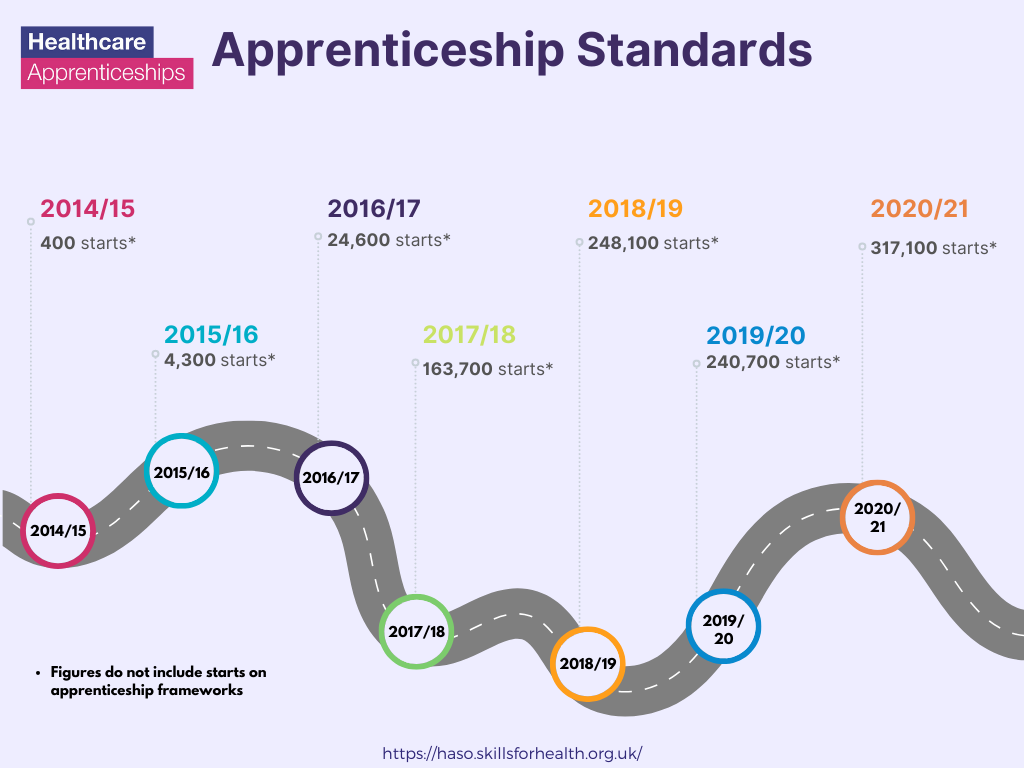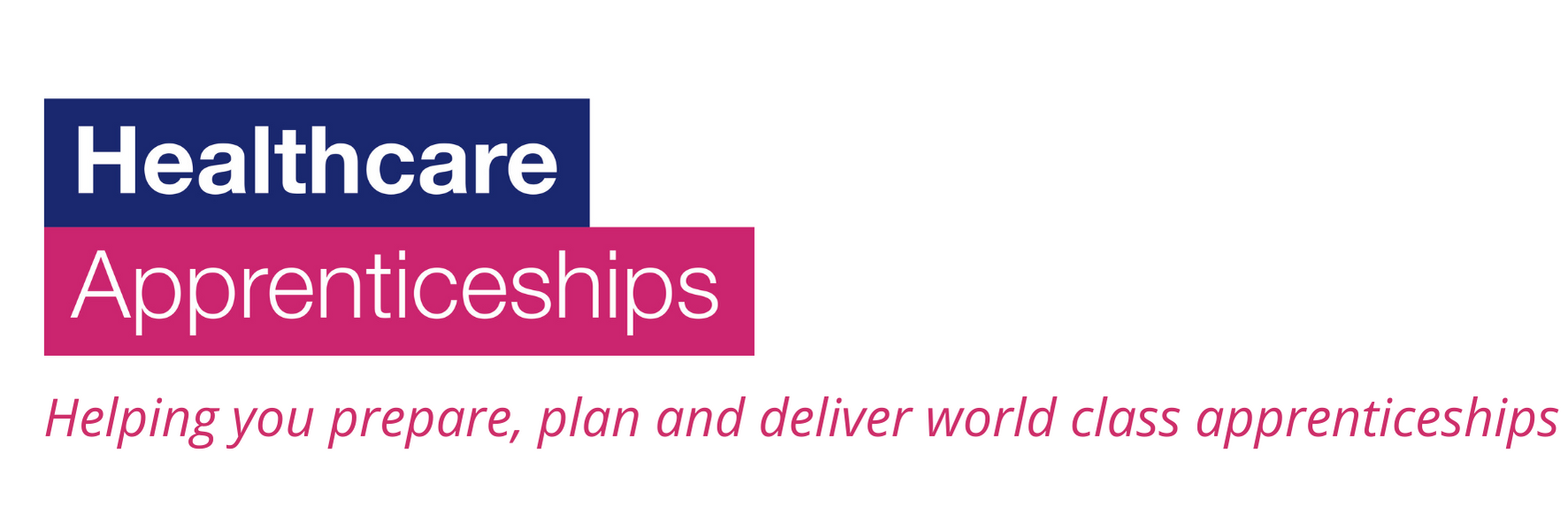 The impact of the reforms on the healthcare sector has been profound.
The impact of the reforms on the healthcare sector has been profound.
In 2012 the idea of using apprenticeships to train new doctors, registered nurses, physiotherapists, diagnostic radiographers or any other regulated healthcare profession would have been considered fanciful. Over the past ten years the development of these apprenticeship standards has brought a number of challenges but as of November 2022, there are apprenticeship standards in place for almost all regulated healthcare professions along with many other health sector occupations. It is now possible to plan career pathways using apprenticeships from Level 2 to Level 7 that can clearly show people the options they have and what they can do to realise their aspirations.
In November 2012 an independent review of the future of apprenticeships in England was published. This review was “The Richard Review of Apprenticeships.”.
The recommendations in this report included:
- Redefining apprenticeships: They should be targeted only at those who are new to a job or role that requires sustained and substantial training.
- Focusing on the outcome of an apprenticeship – what the apprentice can do when they complete their training – and freeing up the process by which they get there. Trusted, independent assessment is key.
- Recognised industry standards should form the basis of every apprenticeship.
- All apprentices should reach a good level in English and maths before they can complete their apprenticeship.
- Government funding must create the right incentives for apprenticeship training. The purchasing power for investing in apprenticeship training should lie with the employer.
- Greater diversity and innovation in training – with employers and government safeguarding quality.
In October 2013, the government published its response to this report, “The Future of Apprenticeships in England: Implementation Plan.” As part of this implementation plan, Apprenticeship Standards were introduced.
It was announced that ‘Trailblazers’ would lead the way in implementing these new apprenticeships. In the Implementation Plan, the first 8 trailblazers were announced. The first 8 trailblazers began in October 2013 and 11 apprenticeship standards were published in March 2014.
In 2014/2015 out of 162,500 apprentice starts 400 were apprenticeship standards. In 2020/2021 out of 321,400 apprentice starts 317,100 were apprenticeship standards. We can see how much things have changed. Click here to access further information.
There are now 658 apprenticeship standards approved for delivery, with a further 84 in development.
Angelo Varetto Head of Standards, Qualifications and Apprenticeships at Skills for Health said:
“When we started working in partnership with Health Education England to support employers and stakeholders to create apprenticeship standards for healthcare support workers and assistant practitioners in 2014 we never imagined that the work we would do would be so far reaching. We have worked with some truly inspirational individuals to introduce apprenticeship standards for both existing and new roles such as Advanced Clinical Practitioner, Clinical Associate in Psychology and Peer Worker. I’d also like to think we have managed to influence changes in apprenticeship policy in a way that has led to positive outcomes for the health sector. We look forward to continuing our collaboration with Health Education England/ NHSE to ensure that the NHS and wider health sector continues to have the apprenticeship standards needed for the workforce.”


